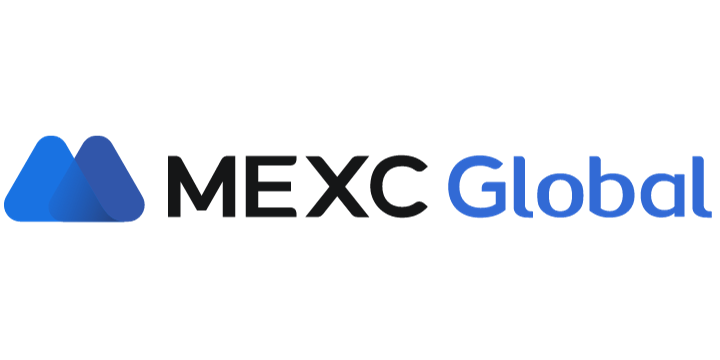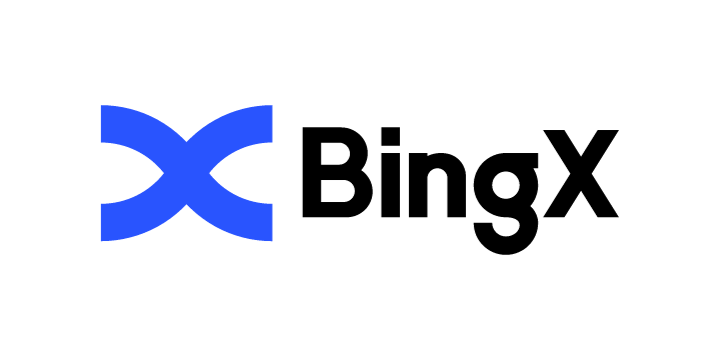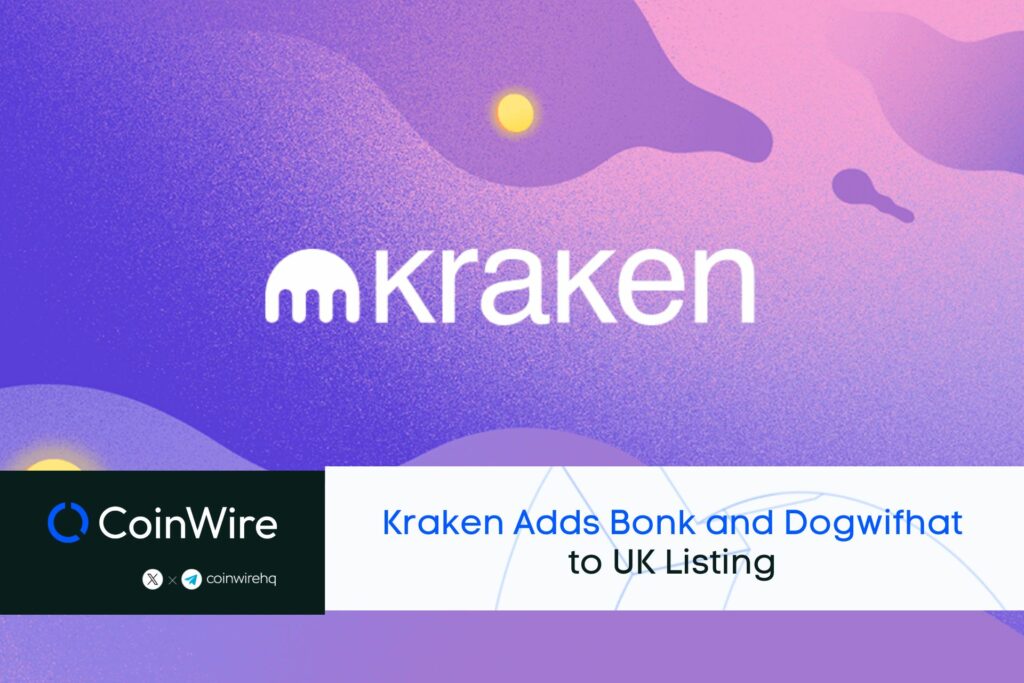Our experts have come up with a list of the best No KYC Crypto Exchanges that will supercharge your safe and fast trading experience.
Traditional cryptocurrency exchanges often require you to complete Know Your Customer (KYC) procedures. This involves sharing personal information and verifying one’s identity.
However, for those who prioritize privacy and wish to trade cryptocurrencies without revealing their identity, no KYC crypto exchanges have emerged as a viable solution.
Our Top Picks: 13 Best No KYC Crypto Exchanges
Here is the list of Bitcoin exchanges to buy crypto without KYC verification:
- MEXC: Best zero-fee no KYC exchange
- Bitcoke: Best for Bitcoin trading without KYC
- BingX: Best no KYC copy trading platform
- PrimeXBT: Best custodial exchange without KYC
- CoinEx: Top no-KYC altcoin exchange
- Changelly: Instant swap without verification
- TradeOgre: Best no-KYC platform for BTC & USDT
- Bisq: Non-custodial P2P exchange
- Hodl Hodl: Best no KYC P2P exchange
- RoboSats: Best no-KYC Bitcoin exchange
- Uniswap: Best Non-custodial DEX
- dYdX: Best No-KYC perpetual exchange
- Pancakeswap: Low fees crypto exchange without ID
| Exchange | Cryptocurrencies | Custody | KYC | Fees | Limit |
|---|---|---|---|---|---|
| MEXC | 1,900 | Yes | Optional | No Fees | 30 BTC per day for no KYC option |
| Bitcoke | 150 | Yes | No | 0.02% maker and 0.04% taker | Depends on individual account |
| BingX | 600 | Yes | Optional | 0.1% maker and 0.1% taker | 50,000 USDT per day |
| PrimeXBT | 50 | Yes | No | 0.01% maker and 0.02% taker; 0.05% for copy trading | Up to $20,000 |
| CoinEx | 749 | Yes | Optional | 0.2% spot trading fees | Up to $10,000 USD |
| Changelly | 500 | Yes | No | 0.25% | < 1 BTC equivalent per day |
| TradeOgre | 176 | Yes | No | 0.2% trading fee on all fulfilled orders | No |
| Bisq | 20+ | No | No | 0.15% by maker and 1.15% by taker | No |
| Hodl Hodl | BTC Only | No | No | Maximum fee of 0.3% per trade | No |
| RoboSats | BTC only | No | No | 0.2% of the trade amount (0.175% taker and 0.025% maker) | No |
| Uniswap | Any ERC-20 Tokens | No | No | 0.3% fee for swapping tokens | No |
| dYdX | +1,000 | No | No | 0.02% maker and 0.05% taker | No |
| Pancakeswap | +1,000 | No | No | Four different fee tiers: 0.01%, 0.05%, 0.25%, and 1% | No |
Best CEX without KYC
1. MEXC Global
![13 Best No KYC Crypto Exchanges in [currentyear] (Buy Crypto No KYC) 5 What Is Mexc](https://coinwire.com/wp-content/uploads/2023/10/what-is-mexc-1024x563.jpg)
MEXC Global is a crypto trading platform that lets crypto traders invest in digital assets with fiat currencies. You can buy and sell crypto like Bitcoin, Ethereum, NFT, DeFi, GameFi, and Metaverse zones on the exchange. It supports more than 1,900 crypto trading pairs.
It has very low trading fees. You don’t have to pay any spot maker or taker fees, futures maker fees, or taker fees are 0.01% on MEXC Global. You can trade crypto without your identity verification. Even, it has the highest withdrawal limit of 30 BTC in 24 hours for non-KYC users.
You can also get up to a $1000 futures trading reward as a free crypto sign-up bonus. The platform also has many trading features such as trading competitions, crypto copy trading, and MEXC MasterCard for quick buy and sell.
- Fees: No Fees
- Deposit Methods: Credit card, SWIFT, and third-party payments (Simplex, Banxa, Mercuryo).
- Withdrawal limits: 30 BTC per day
- Supported Countries: More than 170 countries and regions
Unlock exclusive benefits on MEXC by using referral code “mexc-nokycex” at sign-up and enjoy a 10% discount on trading fees.
2. Bitcoke
![13 Best No KYC Crypto Exchanges in [currentyear] (Buy Crypto No KYC) 6 Bitcoke Exchange](https://coinwire.com/wp-content/uploads/2023/12/bitcoke-exchange-1024x481.jpg)
Bitcoke is a crypto exchange that operates from Hong Kong and does not ask for KYC verification from its users. It enables users to trade more than 150 crypto pairs, including Bitcoin, Ethereum, and more. Users can also trade futures and options contracts with up to 100x leverage, which means they can increase their profits or losses by borrowing funds from the platform or other users.
Bitcoke has a powerful trading engine that can process millions of orders per second, ensuring fast and reliable execution of trades. The platform uses advanced security measures to safeguard its users’ funds and data, such as cold storage, multi-signature wallets, encryption, anti-DDoS, and firewall systems. Bitcoke also follows the regulations and laws of Hong Kong, which is one of the most crypto-friendly jurisdictions in the world.
- Fees: 0.02% maker and 0.04% taker
- Deposit Methods: Only crypto-to-crypto transfer
- Withdrawal Limits: Depends on individual account
- Supported countries: Worldwide
3. BingX
![13 Best No KYC Crypto Exchanges in [currentyear] (Buy Crypto No KYC) 7 Bingx Exchange](https://coinwire.com/wp-content/uploads/2023/12/bingx-exchange-1024x469.png)
BingX is another reliable crypto exchange without KYC verification. It is a social network for crypto copy trading. It was launched in 2018 and has over 5 million users from more than 110 countries and regions. BingX has many services, such as spot trading, derivatives trading, copy trading, and grid trading. Spot trading lets users buy and sell over 600 coins, like Bitcoin, Ethereum, XRP, Litecoin, DogeCoin, Shiba, and USDT.
It is mostly popular for copy trading where you can follow and copy over 8000 top traders, who have made over 38 million copier earnings and 130 million total orders. It also has grid trading that lets users make their own trading plans and make money 24/7 with spot grid and futures grid trading.
You only need to sign up using your email and phone number. Now, it allows you to trade without verifying your identity. You can also deposit and withdraw cryptocurrencies. The withdrawal limit for unverified users is 50,000 USDT per day.
![13 Best No KYC Crypto Exchanges in [currentyear] (Buy Crypto No KYC) 8 Bingx Withdrawal Limit](https://coinwire.com/wp-content/uploads/2023/12/bingx-withdrawal-limit.png)
- Fees: 0.1% maker and 0.1% taker
- Deposit Methods: Visa, Mastercard, SEPA, Line Pay, and 300 more.
- Withdrawal Limits: 50,000 USDT
- Supported countries: Over 110 countries including the US and Canada
4. PrimeXBT
![13 Best No KYC Crypto Exchanges in [currentyear] (Buy Crypto No KYC) 9 Primexbt](https://coinwire.com/wp-content/uploads/2023/12/primexbt-1024x614.jpg)
PrimeXBT is a cryptocurrency trading platform that offers over 50 assets, including crypto, forex, commodities, and indices. You can leverage up to 100x on your trades and boost your profits. You can also follow the top traders and copy their strategies with the “Covesting” module.
PrimeXBT does not require any KYC verification, which means you can sign up and start trading in minutes with just an email address and a password. It provides a user-friendly and customizable interface, with advanced trading tools and features. You can use professional charts, multiple order types, secure wallets, and real-time risk management.
You can also enjoy low fees, high liquidity, and ultra-fast order execution. PrimeXBT is accessible on both web and mobile platforms and supports 24/7 customer service.
- Fees: 0.01% maker and 0.02% taker (0.05% for copy trading)
- Deposit Methods: Crypto deposits only.
- Withdrawal Limits: Up to $20,000
- Supported countries: 152 countries
5. CoinEx
![13 Best No KYC Crypto Exchanges in [currentyear] (Buy Crypto No KYC) 10 Coinex](https://coinwire.com/wp-content/uploads/2023/12/coinex-1024x405.jpg)
CoinEx is another global exchange where you can trade crypto without ID verification. It was launched in December 2017 by Haipo Yang, who was previously the CTO of ViaBTC, a Bitcoin mining pool. It uses a proprietary matching engine that can handle up to 10,000 transactions per second, ensuring a fast and smooth trading experience for users.
The platform adopts multiple security measures, such as cold storage, multi-signature, anti-DDoS, and SMS/email verification, to protect users’ assets and data. It also has a futures reserve fund that can cover any losses in case of market manipulation.
CoinEx supports 749 tokens and 1150 trading pairs, including mainstream coins like BTC, ETH, DOGE, LTC, and XRP, as well as emerging and innovative projects like BCH, BSV, DASH, and TRX. It does not require users to undergo identity verification (KYC) to use its services, which means users can trade anonymously and freely on the platform. However, users who want to enjoy higher withdrawal limits and other benefits can choose to complete KYC verification voluntarily.
- Fees: 0.2% spot trading fees
- Deposit Methods: VISA, Bank Transfer, AdvCash, Simplex, etc.
- Withdrawal Limits: Up to $10,000 USD
- Supported countries: Over 200 countries
6. Changelly
![13 Best No KYC Crypto Exchanges in [currentyear] (Buy Crypto No KYC) 11 Changelly](https://coinwire.com/wp-content/uploads/2023/12/changelly-1024x514.png)
Changelly is an “instant” cryptocurrency exchange that has been in operation since 2015. It allows users to buy, sell, and swap over 500 crypto assets instantly with minimal fees. Changelly does not ask users to register or verify their identity, making it a convenient and anonymous option for crypto enthusiasts.
It also supports crypto-to-fiat and fiat-to-crypto transactions with various payment methods, including credit cards, bank transfers, and Apple Pay. Changelly has a “Pro” version for advanced trades. Users can access multiple order types, margin trading, market analysis tools, and a personal account manager. Changelly PRO also has a loyalty program that rewards users with lower fees and exclusive offers.
Changelly has a mobile application that provides a smooth exchange experience on the go. Users can access all the features of the web platform, as well as enjoy better rates and discounts in the app. The app also has a built-in wallet that allows users to store and manage their crypto assets securely. It has partnered with leading companies in the industry, such as Ledger, Trezor, Exodus, and Coinomi.
- Exchange Fees: 0.25%
- Deposit Methods: credit card (Visa/Mastercard), bank transfer, or Apple Pay
- Withdrawal Limits: < 1 BTC equivalent per day
- Supported countries: Over 60 countries
7. TradeOgre
![13 Best No KYC Crypto Exchanges in [currentyear] (Buy Crypto No KYC) 12 Tradeogre](https://coinwire.com/wp-content/uploads/2023/12/tradeogre-1024x300.png)
TradeOgre is a simple exchange that focuses on spot trading and anonymity. It is suitable for traders who want to trade privacy coins and other digital assets without revealing their personal information. However, it is not recommended for traders who are looking for more variety, high liquidity, or reliability in their trading experience. Also, some users reported it as a “risky’ exchange due to loss of their “Kaspa” tokens on the platform.
TradeOgre has a straightforward and easy-to-use interface that lets you browse the markets and execute orders. The platform supports more than 130 coins and 176 trading pairs, with Bitcoin and Tether as the main base currencies. It also has some limitations that you should be aware of. For one, the platform does not have any advanced trading features, such as margin trading, futures, options, or lending.
- Trading Fees: 0.2% trading fee on all fulfilled orders
- Deposit Methods: Crypto only
- Withdrawal Limits: No Limits
- Supported countries: Worldwide
Best P2P Crypto Exchanges Without KYC
8. Bisq
![13 Best No KYC Crypto Exchanges in [currentyear] (Buy Crypto No KYC) 13 Bisq Exchange](https://coinwire.com/wp-content/uploads/2023/12/bisq-exchange-1024x418.png)
Bisq is a P2P trading network for Bitcoin (BTC) using fiat money without any central authority or identity check. It is made to be secure, private, open-source, and user-friendly. To make sure trades are fair and safe, Bisq uses 2-of-2 multisig wallets and a security deposit system that makes both parties follow the trade rules. If there is any problem, it has a decentralized arbitration system that can solve it quickly and fairly.
Bisq is an open-source project that is built and run by its community. Anyone can help with Bisq’s code, design, documentation, translation, support, marketing, or any other part of the project. Its strategy and direction are talked about openly on platforms such as Keybase, GitHub, Twitter, Mastodon, YouTube, Forum, Freenode IRC, Reddit, Matrix, and Telegram.
- Fees: 1.3% (0.15% by maker and 1.15% by taker)
- Deposit Methods: MoneyGram, transfer, Perfect Money, and Popmoney
- Supported Assets: Bitcoin, Bitcoin Cash, and 20 more.
- Supported Countries: Worldwide
9. Hodl Hodl
![13 Best No KYC Crypto Exchanges in [currentyear] (Buy Crypto No KYC) 14 Hodl Hodl](https://coinwire.com/wp-content/uploads/2023/12/hodl-hodl-1024x395.jpg)
Hodl Hodl is a global platform for trading Bitcoin in a peer-to-peer (P2P) manner, where users deal directly with each other without intermediaries.
Unlike many other crypto exchanges, Hodl Hodl does not store users’ funds but locks them in multisig escrow instead. This means that users have full control over their private keys and can access their funds at any time. It also does not require any verification or KYC, which makes it a privacy-friendly and censorship-resistant option for Bitcoin traders.
It offers a simple and intuitive interface, transparent fees, and a secure and reliable trading system based on Bitcoin multisig smart contracts. Hodl Hodl also offers a lending service called P2P lending, which allows users to lend and borrow cryptocurrencies using Bitcoin as collateral.
- Fees: Maximum fee of 0.3% per trade
- Payment Methods: SWIFT, Bank, Prepaid Cards, etc.
- Supported Assets: BTC only
- Supported Countries: Worldwide
10. RoboSats
![13 Best No KYC Crypto Exchanges in [currentyear] (Buy Crypto No KYC) 15 Robosats](https://coinwire.com/wp-content/uploads/2023/12/robosats-1024x449.jpg)
RoboSats is a peer-to-peer exchange that aims to make buying and selling satoshis easy and private. It is a great choice for anyone who values their privacy and wants to avoid the trouble of KYC. It is an open-source platform. RoboSats uses the Lightning Network and the Tor browser to ensure fast and secure transactions. Users can pick from a variety of payment methods, such as bank transfers, cash, gift cards, and more.
RoboSats is built on the idea of hold invoices, which are a kind of Lightning invoice that can be settled only after both parties agree. This enables users to create bonds and escrows without trusting a third party. It also creates random robot avatars for each user, which helps them keep their privacy and anonymity.
- Fees: 0.2% of the trade amount (0.175% taker and 0.025% maker)
- Payment Methods: PayPal, Venmo, and Cash apps
- Supported Assets: BTC only
- Supported Countries: Worldwide
Best DEX (Decentralized Exchanges) Platforms
11. Uniswap
![13 Best No KYC Crypto Exchanges in [currentyear] (Buy Crypto No KYC) 16 Uniswap](https://coinwire.com/wp-content/uploads/2023/12/uniswap-1024x443.jpg)
Uniswap is another best no KYC crypto exchange. It is a DeFi platform that lets you swap, earn, and build on Ethereum. It is best for buying Bitcoin without KYC. It uses smart contracts to provide liquidity, pricing, and execution. You can trade any ERC-20 tokens without middlemen, fees, or limits. You can trade tokens from any pool on Uniswap. The price changes based on supply and demand, using an AMM system.
It also has its own token, UNI, which is for voting on changes and improvements for the platform. UNI holders can give their votes to others or join the decision-making process. Uniswap is run by its community and supports developers and projects that add value to its ecosystem. The app also has features like alerts, Moonpay integration, and cross-device syncing.
Uniswap v3 has two new features that let LPs manage their capital and risk better. Price ranges let LPs pick what prices they want to offer liquidity for. Fee levels let LPs pick different fees based on how volatile the pool is, letting them get paid more or less for taking more or less risk
- Trading Fees: 0.3% fee for swapping tokens
- Deposit Methods: Credit card, debit card, or bank transfer
- Supported blockchains: Ethereum
12. dYdX
![13 Best No KYC Crypto Exchanges in [currentyear] (Buy Crypto No KYC) 17 Dydx](https://coinwire.com/wp-content/uploads/2023/12/dydx-1024x424.jpg)
dYdX is a no-KYC decentralized exchange that operates on the Ethereum blockchain, and a Starkware Layer 2 scaling protocol, where users can trade directly without any intermediaries. The platform offers advanced trading services, such as leverage, margin, lending, and borrowing. Users can trade perpetual contracts on various crypto assets with up to 20x leverage.
The platform has handled over $20 billion in trading volume since its launch in 2017 and has over 38,588 wallets. It also has its own native token, DYDX, which is used for governance, staking, and fee discounts. One of the main benefits of dYdX is that it does not require any KYC (Know Your Customer) verification, which means users can trade anonymously and securely without revealing their personal information.
dYdX also has low fees, high liquidity, and high performance, thanks to its Layer 2 solution that reduces gas costs and latency.
- Trading Fees: 0.02% maker and 0.05% taker
- Deposit Methods: Crypto only
- Supported Blockchains: Ethereum blockchain
13. PancakeSwap
![13 Best No KYC Crypto Exchanges in [currentyear] (Buy Crypto No KYC) 18 Pancakeswap](https://coinwire.com/wp-content/uploads/2023/12/pancakeswap-1024x376.jpg)
Pancakeswap is another DEX where you can buy crypto without KYC. It runs on the BNB Chain, a blockchain network that is compatible with the Ethereum Virtual Machine (EVM) and supports smart contracts.
Users can also earn rewards by providing liquidity to the exchange, staking tokens, participating in lotteries, playing games, and more. PancakeSwap is powered by its native token, CAKE, which is used for governance and various incentives within the platform.
You can also create and trade unique NFTs on the BNB Chain through the PancakeSwap NFT marketplace, which supports various categories and collections of digital art and collectibles. Users can also earn rewards by staking single-sided tokens (without the need to pair them with another token) or by using liquid staking, which allows users to retain the flexibility of their assets while earning interest. Users can also earn NFTs (non-fungible tokens) by playing games, predicting token prices, or joining lotteries.
- Trading Fees: Four different fee tiers: 0.01%, 0.05%, 0.25%, and 1%.
- Deposit Methods: Credit card, debit card, or bank transfer
- Supported Blockchains: BNB Chain, Ethereum, Polygon, zkEVM, zkSync Era, Arbitrum One, etc.
What are No KYC Crypto Exchanges?
KYC means “Know Your Customer”. It is a way for financial services that deal with fiat currency to check who their customers are. This is to follow the rules and avoid money laundering and other crimes.
No KYC crypto exchanges are the best alternatives for privacy-focused users. These platforms do not ask for any identity proof from their users. They let you sign up with just an email and a password, or sometimes no signup at all. You can then buy, sell, and trade cryptos without giving any personal details or documents.
Why You Should Buy Crypto Without KYC?
- Privacy: Users can trade without revealing personal information, preserving their anonymity.
- Accessibility: No KYC requirements make these exchanges accessible to users worldwide, including those without government-issued IDs. If you want to buy crypto under 18, you can use no-KYC platforms.
- Speed: Registration and trading processes are often quicker since there’s no need to go through KYC verification.
- Anonymity: Reduced risk of identity theft or data breaches, as personal information isn’t stored on the exchange.
What do you need to consider before buying crypto without KYC?
- Regulatory Risk: They may operate in a legal gray area and face potential regulatory crackdowns, leading to sudden closures or restrictions.
- Security Concerns: Increased risk of scams, hacks, and fraudulent activities due to limited oversight.
- Limited Fiat Options: Many No KYC exchanges offer limited or no support for fiat currencies, making it harder to deposit or withdraw traditional money.
- Lack of Insurance: No investor protection or insurance coverage, leaving users vulnerable to losses.
- Limited Features: Typically, No KYC exchanges offer fewer features and trading tools compared to their KYC-compliant counterparts.
How to buy crypto without KYC?
Here are the basic steps to buy crypto without KYC verification:
- Pick a crypto exchange that does not need KYC and has your preferred payment method and the crypto you want to buy. You can use MEXC, BingX, and Bitcoke.
- Make an account on the exchange, if needed. Some exchanges may not even ask for your email address, while others may need a valid email and a password.
- Add funds to your account using your preferred payment method. You may be able to use fiat money, bank transfers, credit cards, or other cryptocurrencies.
- Find the trading pair that matches the crypto you want to buy and the money you have added. For example, if you want to buy Bitcoin in US dollars, you should look for the BTC/USD pair. Then, enter how much crypto you want to buy and confirm the order.
- Move your bought crypto to your own non-custodial wallet. You should never keep your crypto on an exchange, especially a no-KYC one, as it may be unsafe or stolen.
Conclusion: Which is the best crypto exchange without ID verification?
To sum up our guide on the best no KYC crypto exchange, you have many choices as listed above. These platforms let you trade crypto without giving your identity or personal info. This has many benefits, like privacy, security, anonymity, and freedom.
We recommend using MEXC and many other above-listed crypto exchanges to buy crypto without KYC. You can also use decentralized exchanges like Uniswap to buy ERC20 tokens without ID.
But some no KYC centralized exchanges are better than others. Some have more features, fees, liquidity, and security than others. So you need to research and compare different platforms before you choose.
Elevate your crypto trading career with CoinWire Trading signals. Get Premium daily signal calls, trading insight, updates about the current market, and analytics about hidden crypto gems now.
FAQs
Are No KYC Crypto Exchanges Safe?
Non KYC crypto exchanges are not as safe as their KYC-compliant ones. They may break the laws and rules of the countries where they work or where their users are, and they may face legal actions, fines, or shutdowns. If you lose your funds, you will also not have any ID proof to claim insurance.
Can I Use Binance Without KYC?
No, all Binance users are required to undergo KYC process to be able to get access in the exchange services.
Does Coinbase require KYC?
Yes, Coinbase requires KYC to use its platform and services. You may have to give government ID and address proof of your region.
Can I use MEXC without KYC?
Yes, MEXC doesn’t require KYC, but for users opting not to undergo KYC verification, their withdrawal is limited at 30 BTC per 24 hours, making it a notable no-KYC crypto exchange.
Does MetaMask need KYC?
No, MetaMask does not ask for KYC. It is a decentralized wallet that allows you to create an account with a seed phrase and a password. You can use many decentralized apps and platforms with MetaMask without KYC.
Can I use Kraken without KYC?
No, you cannot use Kraken without ID verification. It is a regulated financial service provider that has to follow local anti-money laundering laws and verify the identity of its customers. You have to give personal data such as your name, date of birth, address, phone number, and ID documents when you make a Kraken account.
![13 Best No KYC Crypto Exchanges in [currentyear] (Buy Crypto No KYC) 1 Best No Kyc Crypto Exchanges](https://coinwire.com/wp-content/uploads/2022/11/best-no-kyc-crypto-exchanges.png)



![Bybit Review [currentyear]: Exchange Features, Fee, Pros and Cons 53 Bybit Featured Image](https://coinwire.com/wp-content/uploads/2022/06/Bybit-review-1024x683.png)


![MoonPay Review ([currentyear]): Fees, Pros & Cons, and Sign-Up Guide. 56 Moonpay Review Featured Image](https://coinwire.com/wp-content/uploads/2023/09/moonpay-review-featured-image-1024x683.jpg)
![Binance Futures Quiz Answers (Updated in [currentmonth] [currentyear]) 57 Binance Futures Quiz Answers Featured Image](https://coinwire.com/wp-content/uploads/2022/12/binance-futures-quiz-answers-1024x683.png)